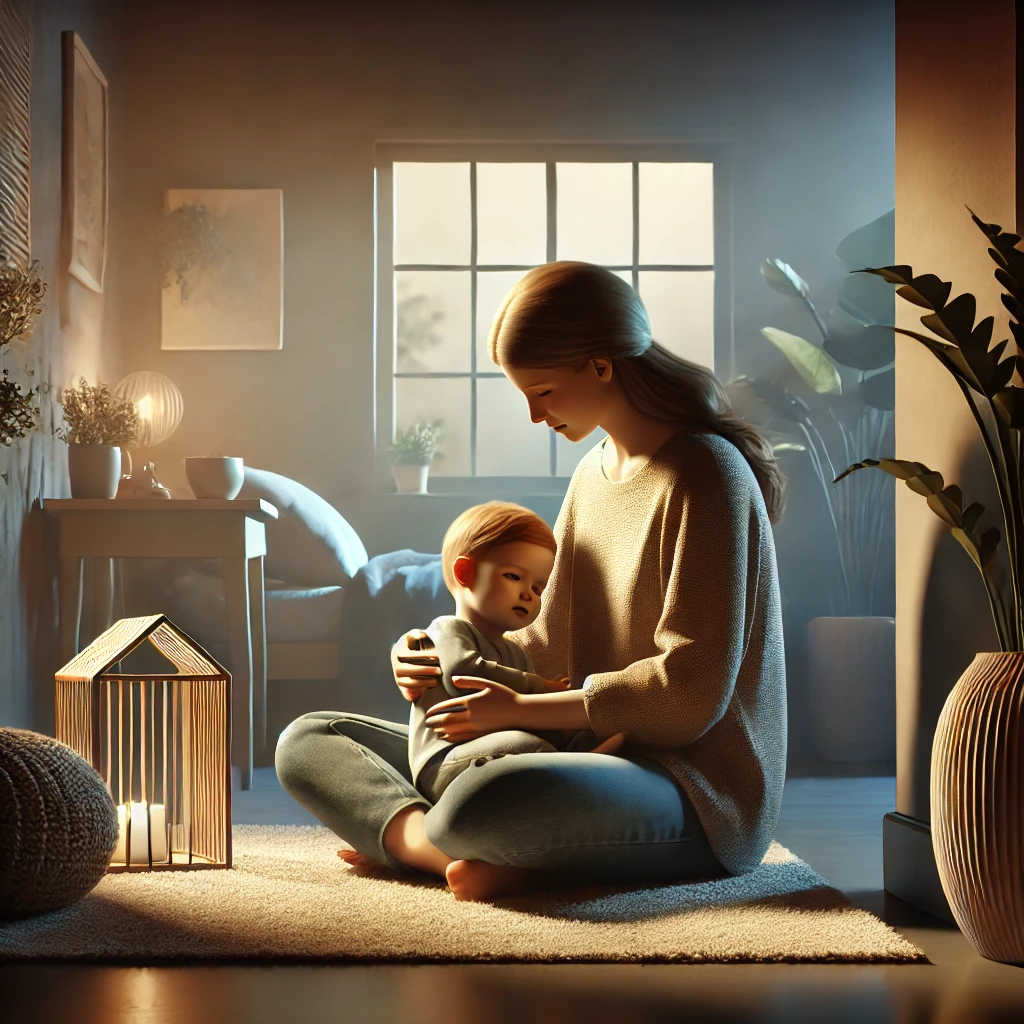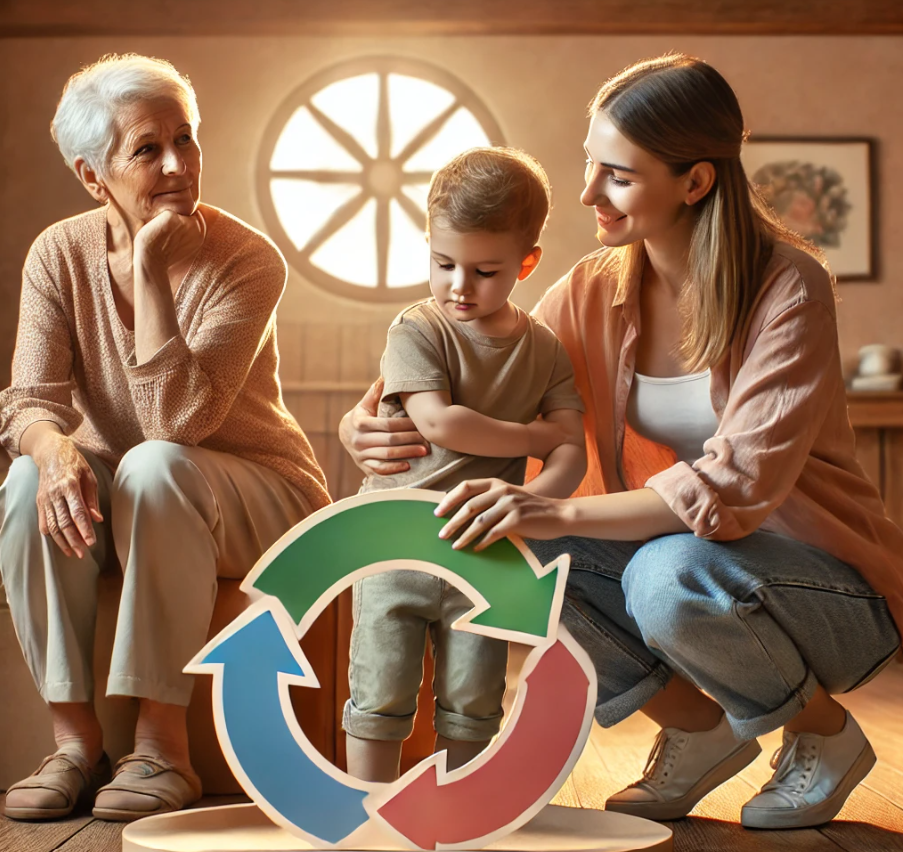
One of my biggest fears and triggers is how my young son will be impacted by my mental health crisis’. As what I would hope would be ‘all’ caregivers, I want only the best for my son and every action I take I try to think about what those words, those actions will mean to him in 20 years.
In this post I will be sharing some insight that I have gained surrounding Trauma-Informed Parenting and how I implement this, and the developments I hope to make.
I know that many of us, especially those who struggle with mental health, fear how our challenges might impact our children. This post aims to share my journey, not from a place of perfection, but from a place of continuous learning.
What is Trauma-Informed Parenting?
Trauma-Informed Parenting is an approach aimed to create a safe and nurturing environment for our children. Sounds like what everyone wants for their children anyway, right? But it does require some self-awareness and for those struggling with mental health difficulties, this may prove more of a challenge as it involves further understanding of the trauma experienced by the parental figure and they will have to be actively working to heal the trauma, in order to be able to create the ‘safe space’ for the child.
For those who have experienced trauma themselves, creating an environment free of emotional triggers can be particularly challenging because it often requires us to rewire our responses in real-time.
Some practices include;
- Understanding Trauma Triggers
Let’s go with a toddler meltdown for example, with physical outbursts from the child alongside the noise, this can become a big stress factor for those with mental health issues. For all caregivers I understanding it is a difficult moment, but those with childhood traumas and adversities, it can remind them of powerlessness and vulnerability. I have always felt the need to be a perfectionist myself, including parenting – so the fear of my child having a meltdown has most of the time, truthfully, been about how I will be seen at that moment as a parent, more than how my child is feeling at this moment.
Since delving deeper into my mental health journey, I am working on changing my responses to what would usually cause my ‘fight or flight’ responses, such as rejection, conflict, confrontation, all things that are unavoidable in life, and when parenting. This can be as simple as refusing to get ready in the morning or not walking to the car when you’re already late, or much more complex such as family disagreements and conflicts.
For me, it is understanding that I have to work to train my amygdala and prefrontal cortex to communicate, as discussed in todays earlier blog.
So I try to remain calm and think about what I need in that moment of heightened emotion; as just because my son does not have any diagnosis’, does not mean that he does not deserve to, or require to take care of his mental health on a daily basis, and that it also requires nurturing from external factors such as friends, family and society.
I attempt to re-direct the disagreement and walk through the events that led up to the moment of ‘outburst’ and find a solution for my son. Something that is not necessarily as easy to do when the situation isn’t just your son not wanting to put his sock on his right foot because ‘it’s his left sock’ and you’re expected to function in society as an adult, but taking just a moment to breathe, focus on focusing (I know, it sounds weird, but basic grounding techniques such as breathing or increasing sense awareness) and then when slightly calmer, looking for a solution for even the smallest of issues when parenting, has helped me stay calm in those moments also, and it prevents emotional outbursts such as shouting at or blaming my child, important in preventing an ACE for him and nurturing my own ACE. - Reparenting Yourself
What I mean by this, is basically what I have touched on above, giving yourself the same care you are attempting to provide your child, a safe, nurturing, loving, accepting, communicative, understanding and empathetic place. This is usually one of the main and first things taught in therapy, and it basically means to be kind to yourself. Drawing healthy boundaries, knowing you are able to ask for help, having a stable support system and plan in place. - Generational Cycles
Being a Millennial, I definitely say I would state I am much more confident in my peers parenting than the generation before us, the ‘baby boomers’
There are studies to show that Millennial fathers are spending an average of 3 times more time with their children than the ‘boomer’ generation, something in itself I think is an immense improvement.
In addition to parenting techniques, I feel that our generation is a lot more empathetic and open to understanding others. I would say we are more open to educating ourselves and progressing with the tools we have provided, without prompt. I have no information or opinion about academically, but in regards to mental health, I already have a strong belief that we will be able to better guide our children and communities with the newfound diversity and acceptance.
I make sure that my son is able to express his feelings whenever he wants; however I have boundaries on how he can express his emotions towards me, as this should not be effecting me negatively either. I avoid placing blame on him for my emotions, even if his actions have caused a trigger for myself, I am open about mental health and do not hide it, but provide information to him suitable for his age. I have never related my illness to him and these are things that I have seen happen closely around me; so I am hoping that these have had and will continue to have a positive impact on his development. I constantly provide affirmations and attempt to avoid superficial affirmations such as ‘handsome, beautiful’ but rather those that represent core values such as kindness, strength, understanding, self-love… My son is allowed to express himself however he may wish, and I avoid gendering colours, activities or actions. He will never be shamed or laughed at for expressing his emotions and I will not tell him to ‘go cry somewhere else’ because I want him to know that no matter his age, feelings of emotions are not something that should be hidden away or ashamed of being portrayed. I also ensure that if there are any disagreements within the household, that there are no raised voices and that the conversation continues wherever it started and that we do not avoid our son in those moments (age appropriately, of course) as it is important that he is able to understand and implement conflict resolution without immense internal fear, something that I find as a trait in myself. - Attachment Theory
John Bowlby’s Attachment Theory explore the early relationships in childhood with their caregivers. For those with trauma experience, understanding this can provide beneficial to their parenting.
There are four main styles; Secure, Anxious, Avoidant and Disorganised. These will develop accordingly depending on the child’s interaction with their caregiver in their early years.
Understanding that I tend to lean toward anxious attachment has helped me recognise when I am seeking reassurance from my son by over-compensating for the times when I feel emotionally distant and allowing me to step back and instead offer him a calm and stable presence.
–Secure
This is when the caregiver responds with the connection we would always hope for; sensitivity, respect and love. A child growing up in an environment such as this should feel comfortable going to their caregiver in their times of distress or need. Often for caregivers who have experienced trauma, myself included, this is an uphill battle, but one I am confident in stating that I am building strongly for my son. He knows he is loved, respected and that he is safe and his values and emotions matter and will be prioritised. He knows we are proud of him and love him unconditionally; however challenges with the other styles can often make this path a difficult one at times, creating yet another journey that is not linear for those in mental health/trauma recovery.
–Anxious
This is when there are inconsistencies in the parenting style, as briefly touched on above. Sometimes the home environment will be loving and stable, and sometimes there will be emotional unavailability or conflict. Children who grew up in environments such as this, may often seek reassurance from their children that they are loved and needed.
–Avoidant
This style is when parents often wilfully or not, neglect a child’s emotional needs, leaving the child in need to self-soothe and regulate their own emotions and with little to no guidance, they often do so in unhealthy and ineffective manners. As a parent, this can make being emotionally available for the child or showing vulnerability difficult. This can present as not being able to ask for help, or putting others above ones own needs.
–Disorganised
This is where the inconsistencies in parenting styles are much more severe and the care can range from supportive or abusive, often unpredictable. This can lead to chaos and confusion within the child’s own state and it can often be very difficult for the parents who struggle with the impulses to both nurture and avoid due to heightened feelings of helplessness and vulnerability. - Creating a Safe and Predictable Home Space
This may seem like it goes without saying, but many children go home not knowing when to expect the next outburst from their caregiver, the next domestic argument, the next meal, the next school, the next place they will sleep, the next day, and these issues are each as complex and important as the next; so although you may have a warm home each night with a hot meal on the table without a miss, your child may not know if they are going to sleep in their own bed, or their parents because of a domestic argument, they may and likely will struggle to understand the difficulties and look for a ‘good guy, bad guy’ situation, leading to internal conflict and confusion. It is important that a child comes home knowing that it will be safe for them not only physically but also emotionally. - Validation of Emotions
One of the points that I find most critical, is validation of emotions. Once I learned to do this, is when I made the decision (yes, decision) to start my healing journey.
Learning to validate your own emotions helps you communicate them a lot better, as it helps remove the stigma and shame often felt around it, and communication is key in recovery. Validating my emotions has made this something that I advise everyone to follow; because I believe that unless you truly allow yourself to feel your emotions, and do not place any self blame for them, understanding that they stem from illness and no self infliction really helps you empathise and provide care to others, which eventually seeps in and becomes second nature, so although not always easy, is helpful in times of personal distress also.

Trauma-informed parenting is not about getting it right every time; it’s about the willingness to grow, heal, and create the nurturing environment we may not have had ourselves. Every step I take towards understanding my own emotions helps me build a better foundation for my son, one where he feels safe, loved, and valued. Of course this is coming from a very privileged place and I understand that access to healthcare, stable housing, financial security and geographical location to name a few can impact greatly; however I wanted to highlight the importance of the information being available to help us, and help us help our children; so why is this not made more accessible, why is this not being provided as basic childcare support and why is this not a part of trauma healing within the NHS signposting services for caregivers?

